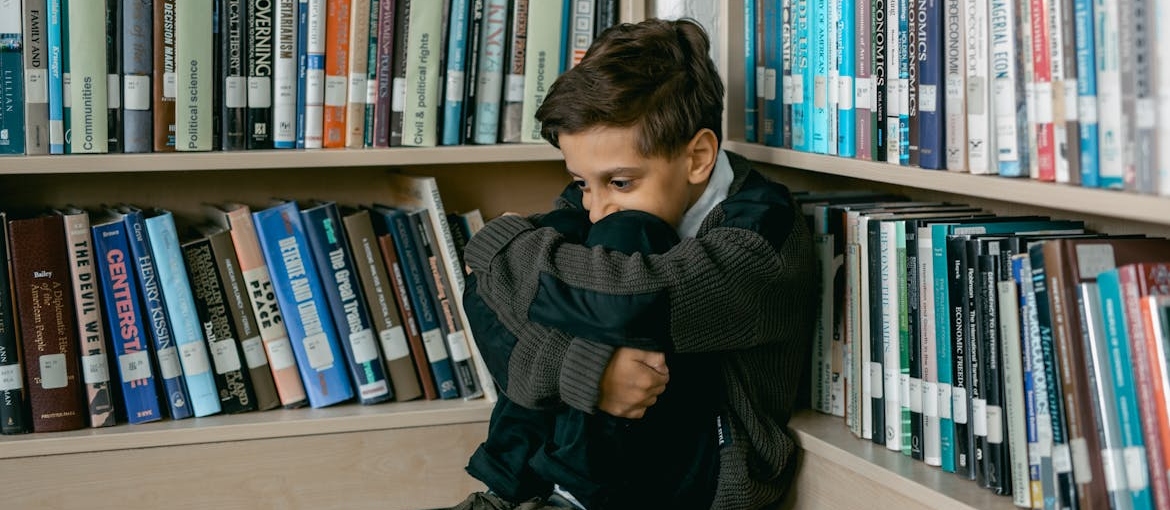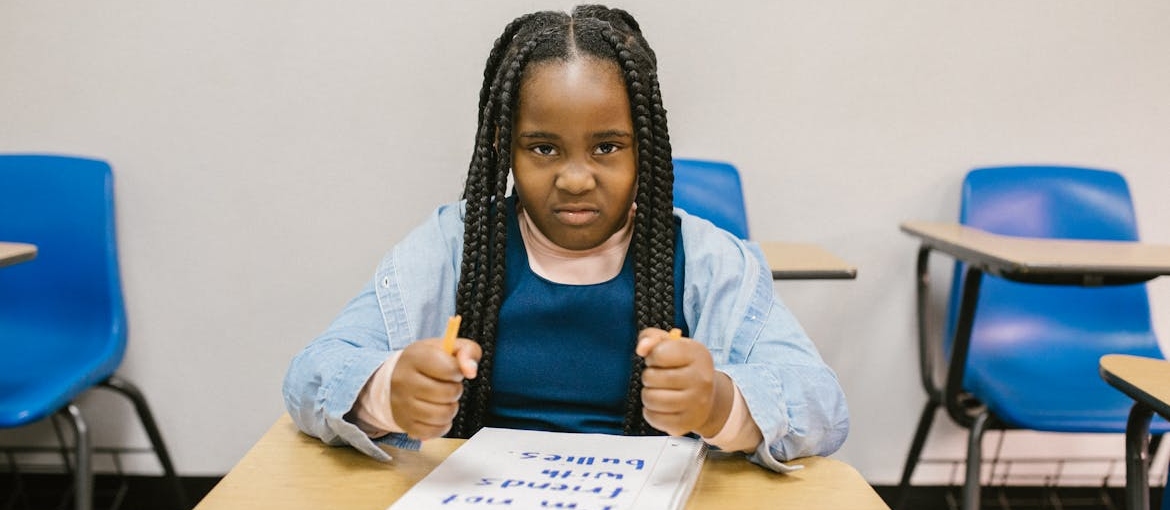When a parent struggles with addiction, the effects reach far beyond their own health. Children often carry the weight in ways that aren’t always easy to see. The impact of parental addiction on child development can show up in emotions, behavior, school, and even long-term well-being. If you’re reading this because your family is facing these challenges, know you’re not alone. Support is available, and change is possible. Treatment programs at places like Harmony Ridge Recovery Center WV can help parents heal while giving children a stronger chance to grow in a safe and stable environment. The earlier the support begins, the more room there is for healing and growth. Let’s look at how addiction affects children and the steps that can protect them.
The Emotional Impact of Parental Addiction on Children
Children living with addiction face deep emotional strain that shapes daily life. The impact of parental addiction on child development appears early and often. Kids may feel unsafe, unseen, or unloved, which harms confidence and trust. Pain can follow into adulthood without support. With caring adults and timely help, healing starts. This section explains common emotional challenges and shows practical ways to support recovery and growth. Small steps change outcomes.

Attachment Issues and Emotional Insecurity
Attachment problems are one of the first clear signs. The impact of parental addiction on child development often begins here, creating feelings of fear and rejection. When bonds break, children struggle to form trust later in life. These signs help explain the lasting harm:
- Clinginess: Constant need for attention.
- Avoidance: Fear of close connections.
- Fear of abandonment: Worrying loved ones will leave.
- Emotional numbness: Struggling to show emotions.
Anxiety, Stress, and Fear in Daily Life
Daily anxiety is another common outcome. The impact of parental addiction on child development often shows up in worry, nightmares, and constant tension. Children rarely feel safe and may carry these symptoms into adulthood. Here are the most common warning signs:
- Hypervigilance: Always on edge.
- Nightmares: Trouble sleeping peacefully.
- Poor focus: Difficulty paying attention.
- Physical symptoms: Headaches and stomach pain.

Depression and Low Self-Worth in Childhood
Children who live with addiction often blame themselves for the chaos at home. That belief lowers confidence and feeds sadness. Low self-worth can turn into depression that lasts for years. This harm is among the strongest effects of parental drug use on child development. Children may think they are unlovable or that love must be earned. Therapy helps. Cognitive behavioral therapy for substance use disorders gives parents tools that support family healing.
Children benefit from related approaches that challenge harsh thoughts and teach skills. Caring mentors, steady routines, and supportive schools also help. Kids need to hear that addiction is not their fault. When parents seek recovery, hope begins to return. With time, support, and steady care, children can rebuild confidence and trust. Peer groups let kids feel less alone.
Behavioral and Social Challenges Faced by Children
Behavior and social life often reflect hidden pain at home. Parental addiction on child development shows up in conduct, friendships, and coping choices. Kids might act out, withdraw, or copy risky behaviors they observe. These patterns can hurt grades, safety, and future options. With early support, children learn safer skills and rebuild trust. This section explains common behavior signs and offers practical steps families and schools can use to help.
Aggression and Conduct Problems at School
Aggression and conduct problems are often the first signs that a child is struggling. Teachers may notice defiance, arguments, refusal to follow directions, or skipping class. These actions are not simple misbehavior. They signal stress, fear, and unmet needs created by chaos at home. Children who lack safe outlets for feelings may express anger with hitting, yelling, or breaking rules. Punishment alone rarely helps and can make things worse.
Supportive responses work better. Schools can provide counseling, calm spaces, and predictable routines. Caregivers can practice clear expectations and consistent consequences without shame. When adults respond with empathy and structure, behavior starts to change. Children learn safer ways to cope, repair relationships, and stay engaged in class. Early help prevents suspensions, academic decline, and long-term social problems for many at-risk students.

Struggles With Peer Relationships and Social Skills
Friendships often reflect the hidden pain children carry. The impact of parental addiction on child development is clear in how kids connect with peers. Trust feels unsafe, and many either withdraw or cling too tightly. The following patterns show how social struggles develop:
- Withdrawal: Avoiding social contact.
- Trust issues: Struggling to rely on others.
- Conflict: Frequent arguments with peers.
- Over-dependence: Becoming overly attached to friends.
Early Risk of Substance Use in Teen Years
Teens who grow up around addiction face higher risk of substance use. Drug and alcohol exposure can seem normal, and stress pushes harmful coping. Peers may encourage experimenting, which quickly becomes a pattern. This risk is part of parental addiction on child development and can pass between generations. Prevention starts with honest talks, clear rules, and safe supervision. Screening at school and in clinics can catch early use.
Specialized care helps when use begins. A rehab center for young adults provides targeted support, education, and therapy for teens. Family involvement strengthens results by improving communication and rebuilding trust. When adults respond early, teens learn healthier ways to handle stress, resist pressure, and set goals. Timely help lowers harm and protects long-term health and success for school, work, and relationships later.
Rehab and Therapy Options for Parents Struggling With Addiction
Parental recovery changes the family story. Effective treatment brings safety, structure, and hope back into daily life. Parental addiction on child development can improve when parents receive the right care. Programs combine therapy, medical support, and skills training to rebuild stability. This section explains treatment paths that help parents heal while protecting children. Choosing care is a strong step toward a healthier home and a safer future for kids together.
Benefits of Inpatient and Outpatient Rehab Programs
Different levels of care meet different family needs. Inpatient programs provide 24/7 structure, medical oversight, and space to focus on recovery. Outpatient programs allow parents to keep working and caring for children while attending therapy. The right fit depends on safety, severity, and support at home. A residential treatment center in West Virginia offers intensive services when risks are high. Outpatient care supports long-term change with flexible schedules and step-down plans.
Both models teach relapse prevention, communication, and parenting skills. As stability grows, parental addiction on child development begins to improve. Children benefit from calmer routines, predictable caregiving, and reduced conflict. Coordinated care with schools and pediatric providers strengthens results. Choosing treatment is a decisive step that protects children and supports lasting sobriety. It builds hope, health, and safety at home.
Family Therapy to Rebuild Healthy Relationships
Addiction strains trust, communication, and daily routines. Family sessions create a safe space to repair these areas step by step. Therapists help parents listen, apologize, and set clear, consistent boundaries. Children learn words for feelings and practice asking for help. Family therapy for addiction focuses on rebuilding connection while preventing relapse. Sessions often include problem solving, conflict de-escalation, and planning for stress.
Caregivers learn to respond to triggers without anger or withdrawal. Kids see recovery in action and feel safer at home. When families participate regularly, progress comes faster and lasts longer. Involving schools and supportive relatives adds stability. Over time, communication improves, trust returns, and routines become predictable again. These gains protect children and support the parent’s ongoing recovery. Healing together reduces shame and builds confidence for everyone involved.

Medication-Assisted Treatment and Behavioral Therapies
Some parents need medications to reduce cravings and prevent relapse. Medication-assisted treatment works best when paired with counseling and skills training. This approach supports brain recovery while parents build healthy routines and relationships. Programs adjust medications carefully and monitor progress. Specialized services, like drug rehab for pregnant women, show how care adapts to unique needs. Therapy methods such as motivational interviewing and trauma-focused care improve results.
Parents practice coping, communication, and relapse prevention in real life. With consistent treatment, stability grows at home. As routines strengthen, parental addiction on child development begins to shift in a positive direction. Children benefit from reliable caregiving, calmer evenings, and fewer conflicts. Coordinated support with pediatricians and schools keeps gains on track and helps families maintain progress. Over time, confidence returns for children gradually.
Supporting Children of Addicted Parents
Children need their own support while a parent works on recovery. Care that focuses on kids reduces harm and builds hope. This section explains services that help children feel heard, learn coping skills, and regain stability. You will find counseling options, community resources, and ways to make home safer. Small steps add up when taken consistently. Every supportive action helps children grow stronger and feel more secure day after day.

Early Intervention and Mental Health Counseling
Early support limits long-term harm and gives children tools to handle stress. Counseling offers a safe place to talk about fear, anger, and confusion. Therapists teach coping skills, emotional vocabulary, and problem solving. School counselors can coordinate services and help teachers understand behavior signals. Peer spaces reduce shame and isolation. Some programs include group therapy for addiction, where children meet others facing similar challenges.
Parents benefit too, because their progress creates calmer routines at home. Screening for anxiety, depression, and trauma guides care plans. Involving pediatricians strengthens follow-up and tracks growth. The sooner help begins, the faster children regain confidence and trust. Early intervention creates momentum that carries into adolescence and adulthood. Mentors, coaches, and supportive relatives add stability and model healthy, caring relationships. Trusted adults reinforce skills between sessions.
Community Resources and Support Programs for Families
Communities offer services that help families recover together. Local organizations provide mentoring, after-school programs, and respite care. These resources reduce stress on caregivers and give children safe places to grow. Faith groups, youth clubs, and neighborhood centers can connect families with food, transport, and tutoring. Some programs are designed specifically to support kids living with addicted parents.
They teach coping skills, build friendships, and give children trusted adults to call. Hotlines and text lines offer quick help during crises. Libraries often host support groups and workshops about parenting in recovery. Case managers coordinate services so needs do not fall through gaps. When families feel supported, progress lasts longer. Reaching out is a strong step toward safety, stability, and healthier futures for children. It also reduces isolation and burnout for caregivers.

Creating a Safe and Stable Home Environment
Safety at home builds the foundation for healing. Children relax when routines are predictable and conflict is low. Recovery gives families a chance to create calm spaces and clear expectations. Home stability helps children begin healing. The impact of parental addiction on child development can improve when caregivers create structure and security. Predictable routines and warm support give kids a chance to feel safe again. Families can start with these steps:
- Consistent routines: Regular meals, bedtime, and school schedules.
- Safe spaces: Calm areas without substances or conflict.
- Clear rules: Simple expectations with steady follow-through.
- Warm connection: Daily check-ins, praise, and shared time.
Break the Cycle for the Next Generation
The impact of parental addiction on child development is real, but it does not have to define a child’s future. Kids need stability, care, and safe support to grow in healthy ways. Parents who seek treatment are taking the first step toward breaking harmful patterns. Therapy, rehab programs, and family counseling give both parents and children a chance to heal together. If your family is struggling, reaching out for help can make the difference. Support is out there, and it’s designed to guide families through recovery with compassion and structure. Every positive step a parent takes can give their child more hope and security. Change is possible, and healing is within reach. The right care can help parents rebuild while giving children a stronger chance to thrive.



